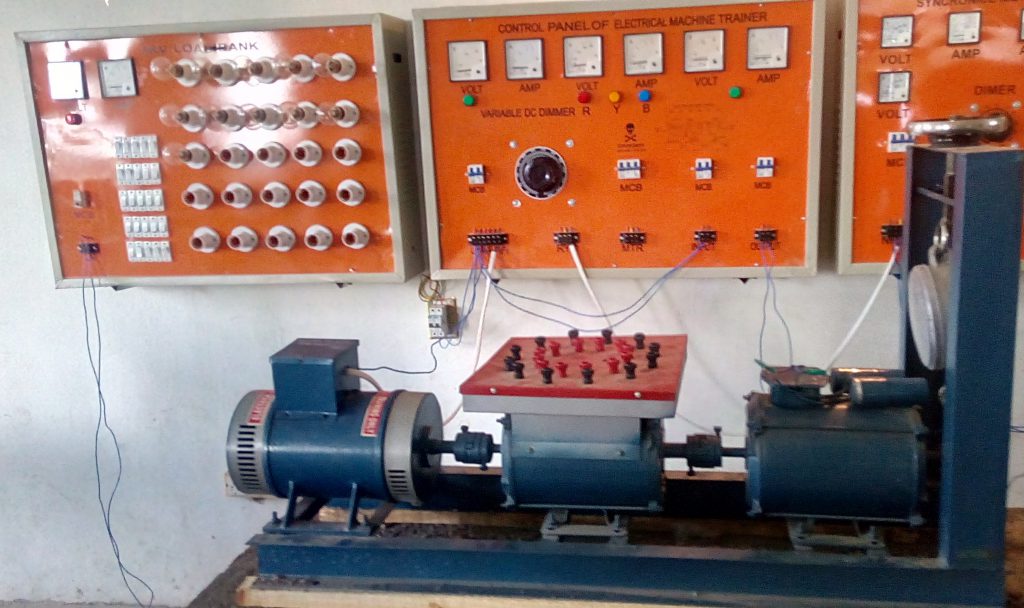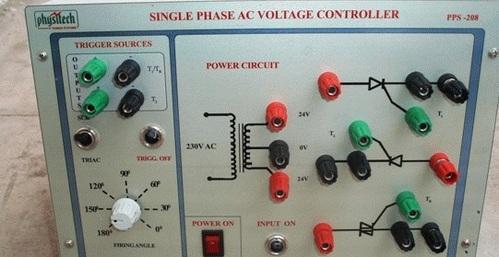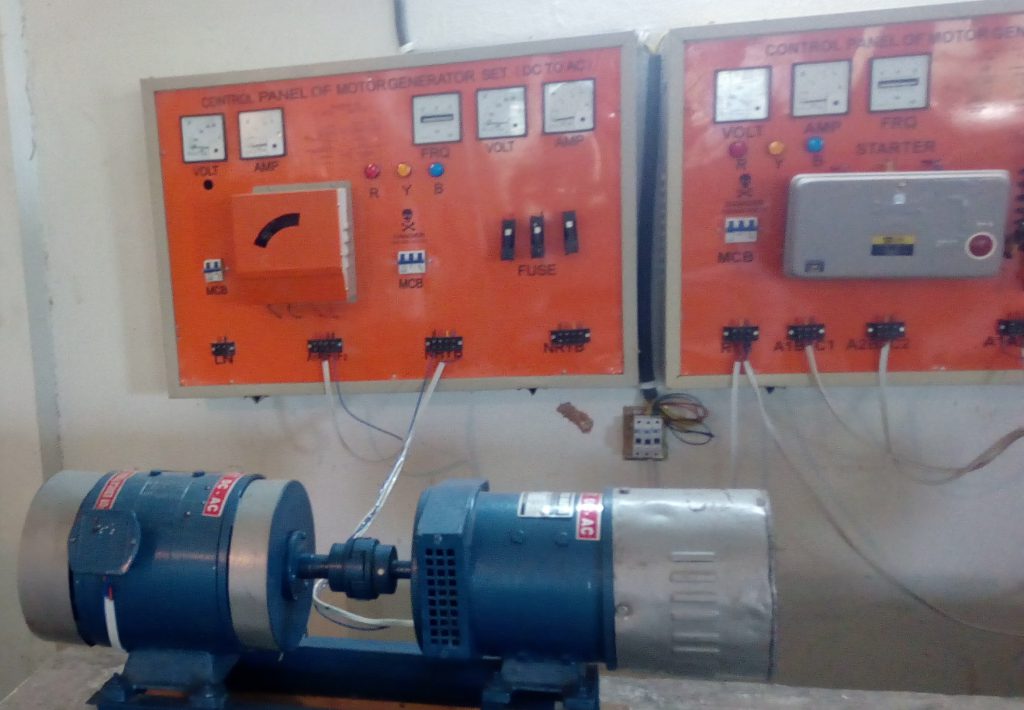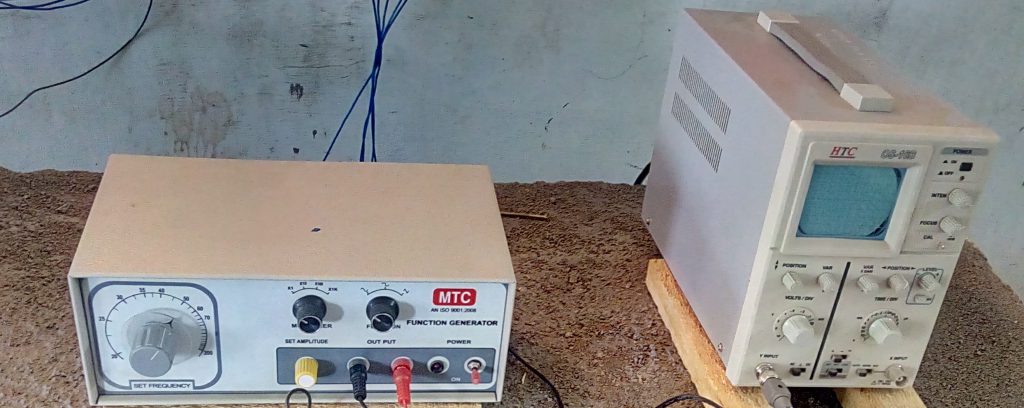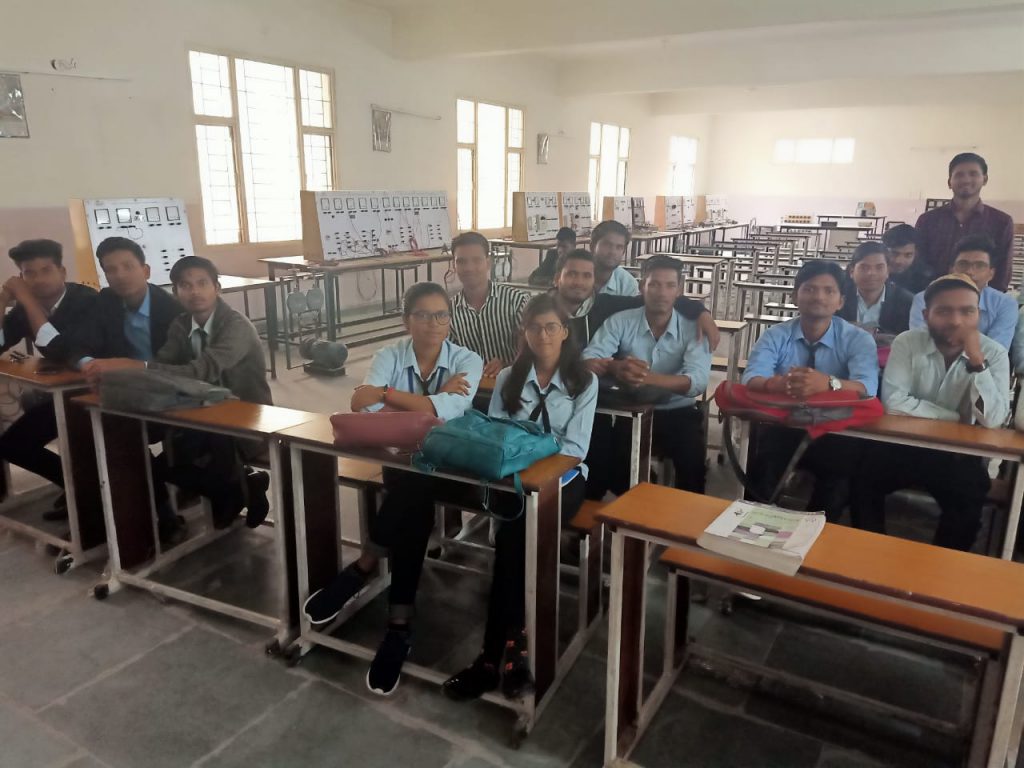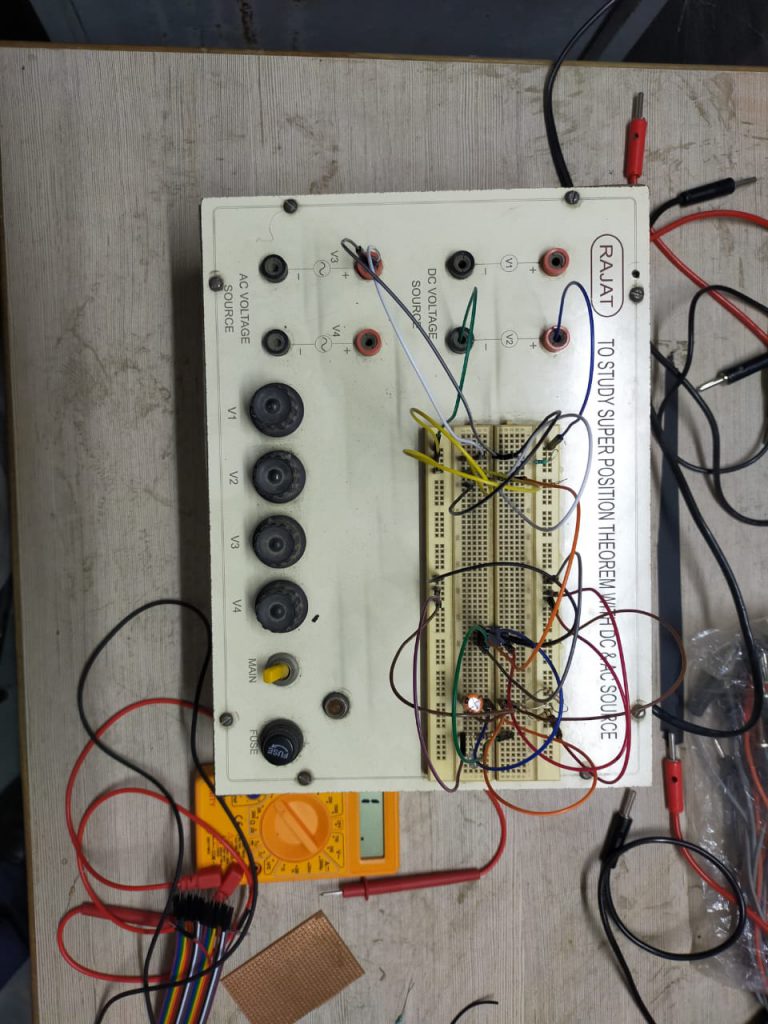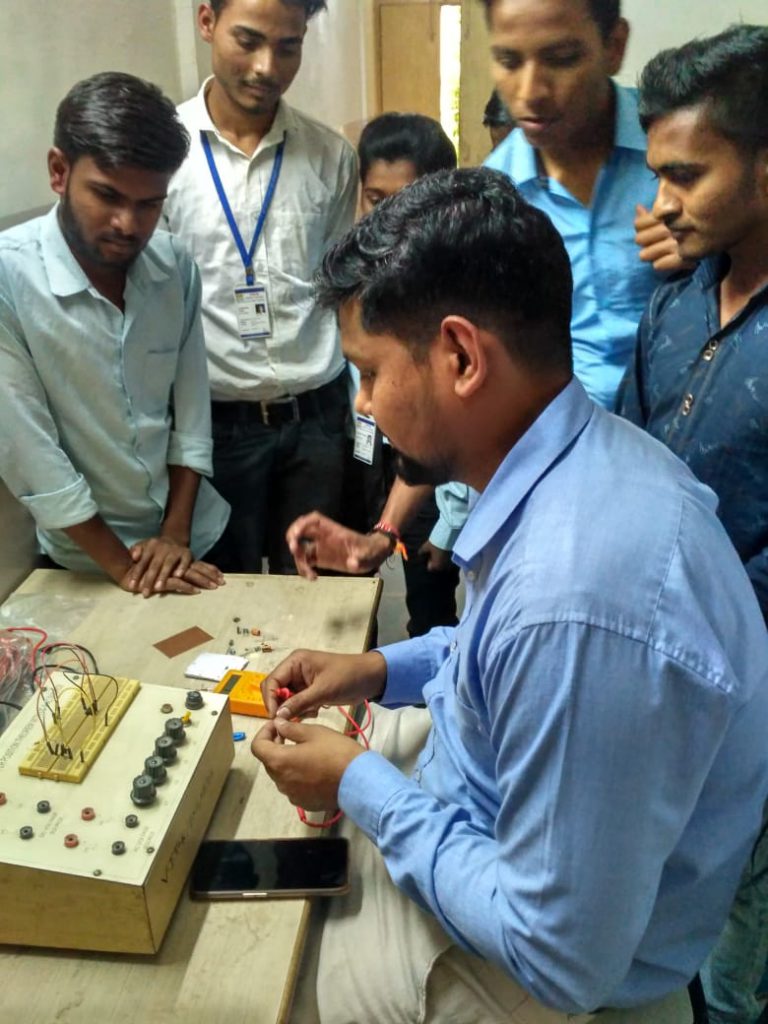All Labs of EN & EC Department are well equipped and fulfill the University norms.
BASIC ELECTRICAL ENGINEERING LAB
COURSE OUTCOMES- After successfully studying this course, students will: 1. Explain the concept of circuit laws and network theorems and apply them to laboratory measurements. 2. Be able to systematically obtain the equations that characterize the performance of an electric circuit as well as solving both DC Machines and single phase transformer. 3. Acknowledge the principles of operation and the main features of electric machines and their applications. 4. Acquire skills in using electrical measuring devices
CONTROL SYSTEM LAB
Course outcomes: At the end of the course student will have ability to 1. Will have a strong knowledge of MATLAB software 2. Will be able to do various engineering projects. 3. Ability to formulate transfer function for given control system problems. 4. Ability to find time response of given control system model. 5. Plot Root Locus and Bode plots for given control system model 6. Ability to design Lead, Lag, Lead-Lag systems in control systems 7. Ability to design PID controllers for given control system model
Electrical Machines-I Course Outcomes: At the end of lab course, student will able to 1 Determine the performance of a single phase transformer by conducting Open Circuit (O.C) and Short Circuit (SC) tests and Sumpner’s test. 2 Understand 3-phase to 2-phase transformation using the Scott connection and determine the different losses of the transformers. 3 Determine the performance characteristics of DC shunt and DC compound generators by conducting load tests. 4 Implement the speed control techniques for a separately excited DC motor 5 Determine the performance characteristics of DC machine by conducting direct and indirect tests. Electrical Power System
Course Outcomes: l Analyze the performance of transmission lines and relays l Calculate the steady-state power flow in a power system. l Analyze different types of short-circuit faults which occur in power systems
Electrical Measurement lab
Course outcomes 1. Upon completion of study of the course should be able to calibrate and test single phase energy meter, calibrate PMMC voltmeter and calibrate LPF wattmeter 2. Student should be able to measure resistance, inductance and capacitance 3. Students should be able to measure 3-Φ active power and reactive power, 4. Students should be able to test current transformers and dielectric strength of oil. 5. Students should be able to calibrate LVDT and resistance strain gauge.
Switch Gear & Protection Lab
Course Outcomes-1 To introduce students to power system protection and switchgear. 2 To teach students theory and applications of the main components used in power system protection for electric machines, transformers, bus bars, overhead and underground feeders. 3 To teach students the theory, construction, applications of main types Circuit breakers, Relays for protection of generators, transformers and protection of feeders from over- voltages and other hazards. It emphasis on neutral grounding for overall protection 4 To develop an ability and skill to design the feasible protection systems needed for each main part of a power system in students.
Matlab
Course Objectives: 1. To impart practical working knowledge of Electrical and Electronics Simulation and Analysis using Mathematical computing languages such as MATLAB and/or SCILAB. 2. To Solve, Simulate and Analyse basic Electrical and Electronics Circuits and Applications by writing Ohm’s law, KCL and KVL Mathematical Equations and Programs.

